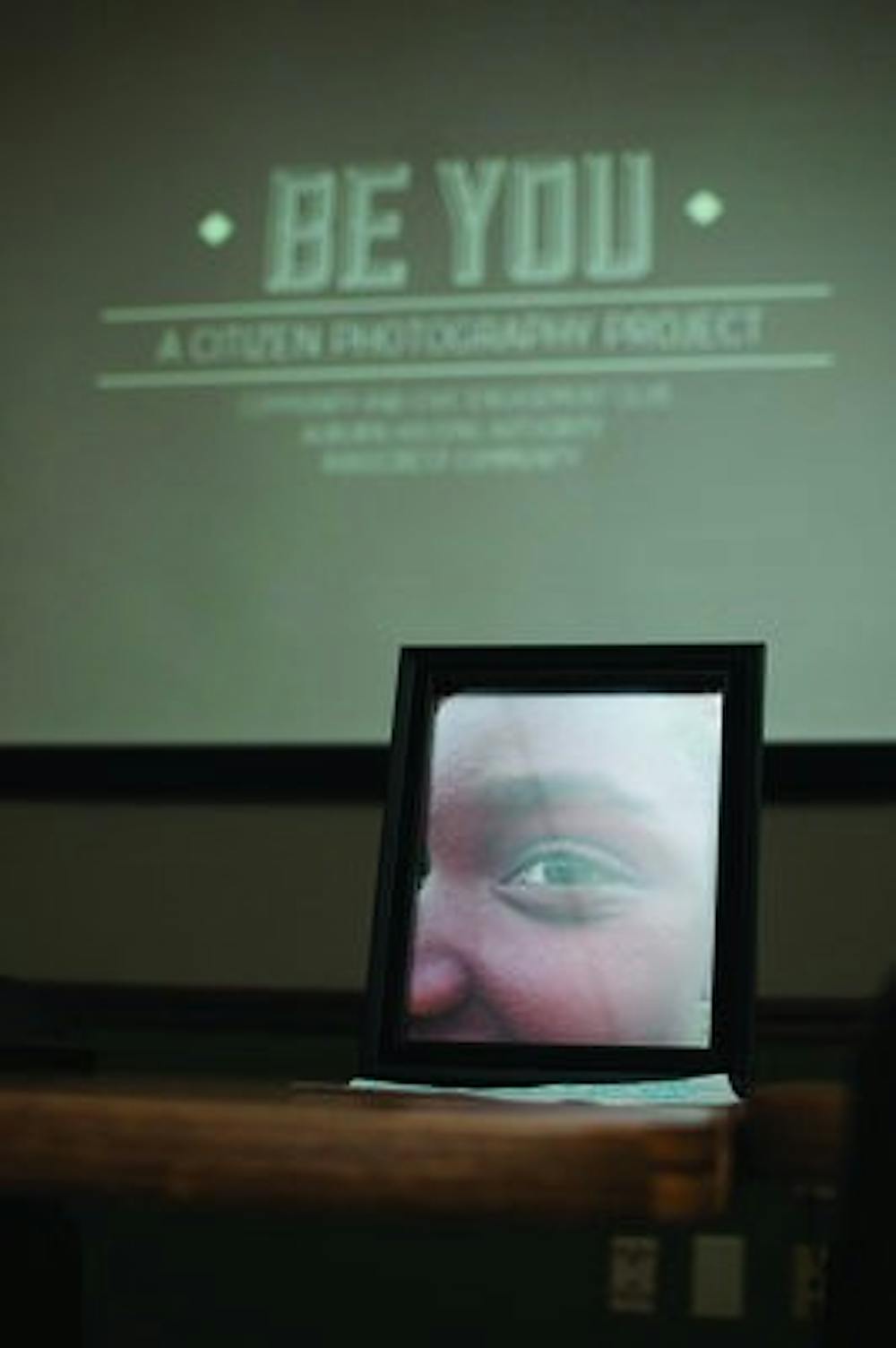Who knew a simple disposable camera could teach kids moral lessons such as how to be better leaders and citizens?
This semester, with the help of Auburn students, a group of children ranging from 6-12 years old, learned how to express themselves through photography, writing and drawing in a pilot program called Be You: A Citizen Photography Project.
"There's a disconnect on what's being focused on in the schools, so the family environment and the personal characteristic environment at home are separated," said Mary Afton Day, senior in public administration and civic and community engagement. "We realized that art, critical thinking and writing were main issues that needed to be focused on."
Day organized the program as part of her capstone project, along with assistance from the Ridgecrest Housing Community.
She encouraged the kids to discover what makes them unique, how to express themselves and how to solve issues in their community they are passionate about.
"I learned that it doesn't take much to help kids or make an impact because even if they don't admit it, they enjoy having someone there who listens to them and have someone to talk to and engage with," said Morgan Allison, senior in mechanical engineering. "It doesn't take much. Even if you don't see results, over time, the stuff that you do really does make an impact."
Day said she wanted the kids to learn about themselves, because she said she feels individuality is not a bad thing, and it can be taken and ran with to really create a better leader and citizen for tomorrow.
The group met Tuesday afternoons to discuss how to be better leaders in the community and be creative in solving issues facing their communities.
One week, Day gave the children a disposable camera and told them to photograph scenes demonstrating their uniqueness.
"My favorite part was when we took the pictures and we had to write about them," said 9-year-old Jamiyah. "I took a picture of a flower. My granddad, he died in the U.S. Army. The flower and my granddaddy are connected because I put flowers on his grave."
Another week, the kids were asked to think about leadership characteristics.
They were given a popsicle-stick frame made out of four sticks, and asked to write one leadership quality on each stick.
Jamiyah said the lesson helped her "learn about leadership - like help anyone she should be nice. Because you have to follow those to be a good leader."
Allison said he worked with one student in particular throughout the project and said he was lucky to mentor the boy.
"I think I helped him change because he needed someone who was there, who he could count on and someone who listened," Allison said. "Not saying that he didn't have that, but he needed someone in the program to show him that he didn't need to act like a tough guy."
Day said the object of the project was not to change the children's outlook or their maturity, but to allow them to be children in a constructive environment.
"They have grown up so much faster than any of us realized," Day said. "Even though I was 10-15 years older than most of these kids, it was unfathomable to what they have seen, what they have heard and the way they act."
Day said he understands that even though they're young, they have dynamic feelings like all people.
"You are pretty much dealing with small adults, size-wise they are small, and they're mature in some ways more so in the world than you would expect for an 8-year-old," Day said.
The pilot project began in the Ridgecrest Community, but will spread to the other five Auburn Housing Authority communities.
"Be You was really an effort to show them their greatness. I know that's not a wonderful way to describe it because it doesn't have a deep meaning," Day said. "It's hard to put words to what those kids accomplished, especially what they taught me and definitely the other volunteers."
Do you like this story? The Plainsman doesn't accept money from tuition or student fees, and we don't charge a subscription fee. But you can donate to support The Plainsman.




